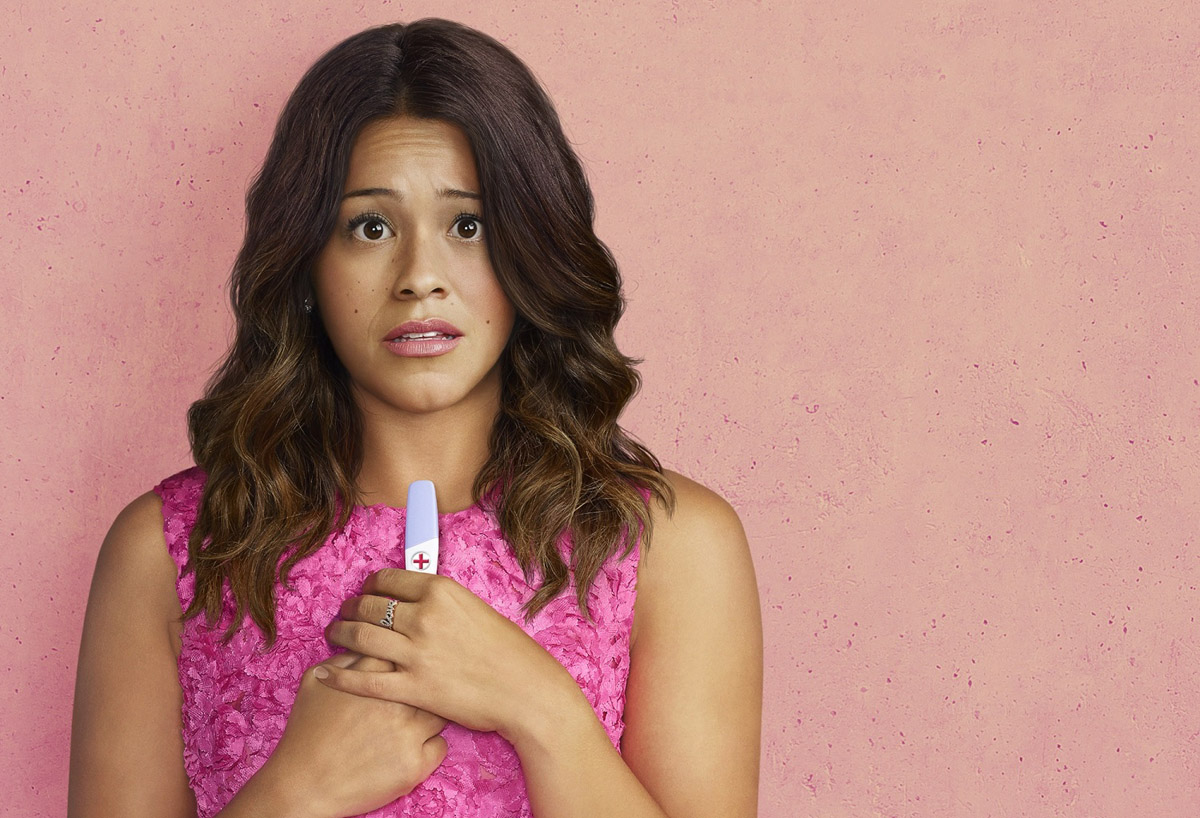Jane the Virgin Paves the Way For Better Diversity on TV
But we still have work to do, Hollywood!

Obviously, there’s the cast of Latin@ characters, each of whom are nuanced and grounded even as the show itself employs heightened telenovela tropes and imagery to tell its stories. When it comes to roles for Latin@s, Jane star, Gina Rodriguez talked about what Latin@ actors can do to make themselves more of a force to be reckoned with:
When it comes to taking roles, Rodriguez exhorted Latino actors not to stop and ask whether the casting director is looking for a Cuban or a Dominican or a Mexican. People from each of those countries can define significant differences with Latinos from other countries, but outsiders are much less likely to do so.
“We need to unite,” Rodriguez said. “They see us as one community — we need to be one community. Let’s do that, use our power as Latinos, whatever culture you identify with and celebrate.”
That’s interesting advice. As a Puerto Rican woman with Latin@ friends of several nationalities, I can tell you firsthand that the Latin@ community does itself a great disservice in the US by not being more of a bloc. Moving as a unit, both in entertainment and in politics, would give the community much greater influence. That said, I think it works both ways. As we’re the fastest-growing minority in the United States, it behooves the rest of the country to understand we aren’t a homogeneous group just because we all speak Spanish. As far as politics go, for example, Mexicans, Puerto Ricans, and Cubans aren’t going to have the same concerns regarding something like immigration, so when politicians aim for some imaginary, blanket “Latino vote” by making this a focal point, it kinda drives me a little crazy.
As far as casting, which is what Rodriguez was discussing, it’s true that moving as a united community would have its advantages. That said, it’s also important for Hollywood to understand that Latin@s not only come from different countries, but also look very different as a result. Often, it is people who look like Rodriguez who are cast in Latin@ roles. But there are white Latin@s. There are black Latin@s. Yet someone like Gina Torres, who is Cuban, gets cast as a Russian on Alias, but has yet to be cast as a Latin@. Mexican-American actor Hayley Orrantia plays a Jewish character on The Goldbergs in her first major role after being a contestant on The X Factor. There are some actual Latin@ actors out there who don’t get to play Latin@ roles, precisely because Hollywood is locked into one type.
So, not only should Latin@ actors follow Rodriguez’s advice and not ask what specific ethnicity a casting director is asking for, but they should also audition for all Latin@ roles no matter what they look like, because Hollywood should remember that not all Latin@s look like Gina Rodriguez, or America Ferrara, or Eva Mendes. Hell, when I first started watching Jane the Virgin, I assumed that Yael Grobglas’ character, Petra, was also supposed to be Latin@, until the show revealed she was actually Czechoslovakian, because it’s possible for a Latin@ to look like that, too.
In addition to what Jane the Virgin does for Latin@s, there’s also the fact that the protagonist is a woman, as is a majority of the main cast. Showrunner Urman latched onto that in order to navigate writing about a culture that is not her own.
The key, she said, is to be specific. She said with a laugh that it has been much harder to write men than it has been to write for Jane, “a driven, Type-A woman who wants to be a writer.”
Added Urman: “I think it’s about writing people, not writing race.”
It’s amazing to see so many women interacting with each other in a loving, complicated, real way. Sure there’s love talk (it wouldn’t be a telenovela homage without love talk), but there’s also real talk about what it means to be a woman, and there are conflicts between characters which have nothing to do with men.
And yet Urman and her team certainly don’t ignore race or ethnicity, either. As specific as the writing is with regard to character choices, it is equally specific with how the characters interact with their culture. For example, Jane and her mother and grandmother speak Spanish at home, and fluently (with the grandmother speaking in Spanish exclusively while the others speak back to her in English, which is a really nice touch). Meanwhile Raphael seems to have zero connection to his Latin@ roots and barely speaks Spanish.
It’s thrilling to see Jane the Virgin getting so much attention, and I think it’s an amazing start to bettering representation of Latin@s and women on television. However, as Rodriguez points out – there’s still work to be done.
(via Deadline)
Are you following The Mary Sue on Twitter, Facebook, Tumblr, Pinterest, & Google +?
Have a tip we should know? tips@themarysue.com